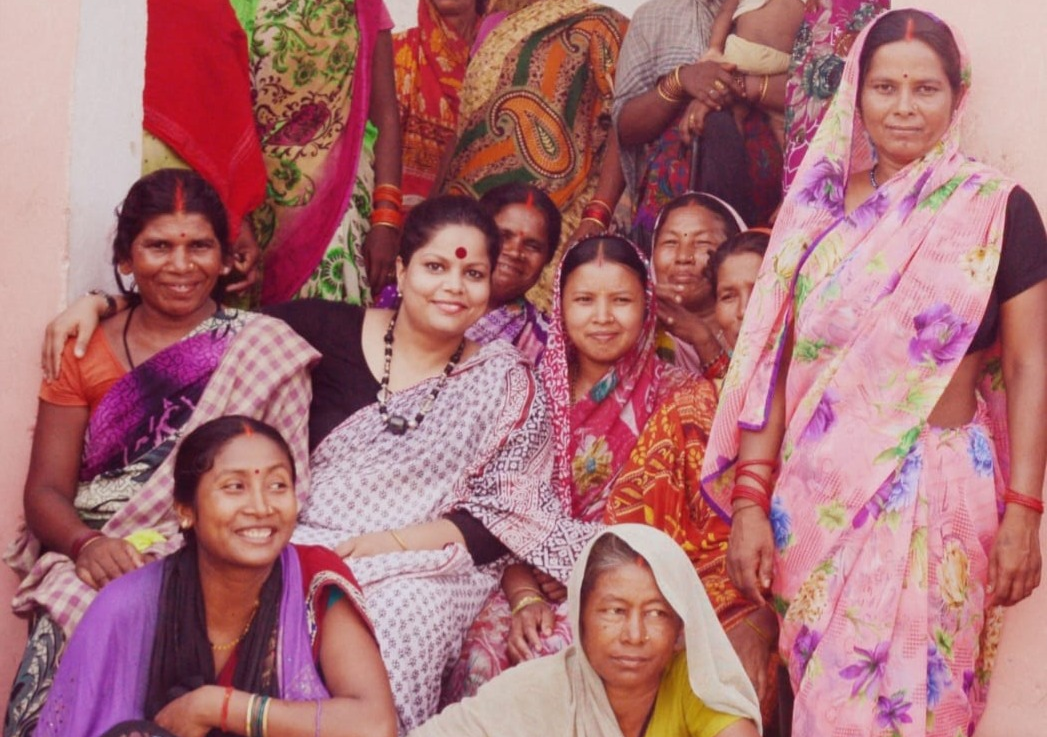In the rice fields of South Asia, women are the silent workforce behind planting, weeding, harvesting, processing and often managing the need for nutritious food within the household as well. Across the region, an estimated 60 to 98% of economically active women are engaged in agriculture in some form whether as cultivators, unpaid family labor, or entrepreneurs. Yet despite their central role, women remain marginalized in gaining access to land, credit, technology, and decision-making, perpetuating deep gender gaps in one of the world’s most vital food systems.
At the forefront of challenging this imbalance is Dr. Sugandha Munshi, Senior Associate Scientist a gender and social inclusion expert at the IRRI/ International Rice Research Institute - South Asia Regional Centre (ISARC), located at Varanasi, India.
Through participatory research, gender-inclusive innovations, and policy engagement, Dr. Munshi and her team are helping reshape rice-based agri-food systems to ensure women are no longer left behind, and lead from the front.
Gender Inclusion is Not an Add-On: It's the Core
“At IRRI, we don’t treat gender as a siloed component. It’s a cross-cutting pillar integrated into every stage of research, outreach, and innovation,” explains Dr. Munshi. “From technology design to impact evaluation of our projects, we make sure women’s needs, voices, and lived realities are part of the system.”
In Eastern India for instance, IRRI’s gender-responsive programs have enabled thousands of women farmers to adopt climate-resilient practices such as Direct Seeded Rice (DSR), zero tillage, and early wheat sowing, supported by targeted training and strong partnerships with local self-help groups (SHGs), government and rural development agencies.
But the structural barriers are still steep. “Even today, women's land ownership remains alarmingly low. Less than 20% in many regions,” notes Dr. Munshi. “This lack of ownership means exclusion from credit schemes and formal recognition in the workforce. We need strong policy directions that enable women-led Farmer Producer Organizations (FPOs) and access to productive resources.”

From Participants to Trainers and Agripreneurs
One of IRRI’s most transformative strategies has been to develop Women Master Trainers, in partnership with state agencies and rural federations like Mission Shakti and JEEViKA. These women master trainers in turn, lead climate-smart agriculture training across villages, serving as mentors and mobilizers in their communities.
“We're not just training women; we’re building women-led ecosystems of knowledge and influence,” says Dr. Munshi.
This includes entrepreneurship too. In Odisha, the creation of women service providers in collaboration with the Department of Agriculture (Government of Odisha, India) under the the Precision Direct-Seeded Rice Based Diversified Systems for Transforming Labour Requirement, Yields and Profitability of Smallholder Farmers has empowered women enhancing both their incomes and nutritional qualities. Establishment of a women led mini rice processing facility with government of Odisha and Rice Nursery Enterprise led by women in the state of Bihar in collaboration with Bihar Rural Livelihood Promotion Society -JeeVika and Jyoti Mahila Samakhya Federations has been another important milestone in this endeavour.
Nutrition Security Starts with Empowered Women
“Women are the gatekeepers of household nutrition,” emphasizes Dr. Munshi. “When they are empowered with knowledge and resources, it translates directly into better diets, health, and food security.”
IRRI’s promotion of biofortified zinc-rich rice and diversified cropping systems has helped women introduce mung beans, groundnuts, and sunflowers into traditionally rice-dominated farms. These changes have not only improved dietary diversity but also reduced labor burdens.
“Traditional knowledge in seed selection, water management, and soil health is strong among women. By blending this with scientific tools, we build climate-resilient systems rooted in local wisdom,” Dr. Munshi reflects.
Digital Inclusion: Reaching the Last Mile
IRRI’s digital innovations, such as the AgDay app and Rice Crop Manager (RCM), have been tailored for women with low digital literacy.
Over 200,000 women across eastern states of Bihar, Odisha, and Uttar Pradesh in India have received mobile-based agro - advisories. Additionally, Digital Agro-Innovation Hubs provide hands-on learning in e-marketing, precision farming, and data tools.
“Digital access is not just about devices, it’s about trust, training, and relevance. These platforms are helping us bridge the gender digital divide and make innovation more inclusive,” she adds.” says Dr. Munshi.“
What Must Change: Policies for Equity
Dr. Munshi stresses the need for more inclusive and intersectional policies. “We must recognize the multiple identities that shape women’s experiences – geography, ergonomics, social strata that are very relevant and real, in the cultural context for a country like India; and develop targeted interventions accordingly.”
Key shifts that are needed are highlighted as:
- Joint or individual land titles for women
- Women-centric mechanization, or what she calls “gendered greasing”
- Subsidies and start-up support for women-led agri-enterprises
- Stronger social and vocational identity of women as farmers
Looking Ahead: A Gender-Responsive Future
IRRI’s gender strategy is aligned with the Sustainable Development Goals, especially SDG 5 (Gender Equality) and SDG 2 (Zero Hunger). The focus now is on scaling impact through:
- Closing gender data gaps
- Expanding digital tools like AgDay and RCM
- Strengthening women-led SHGs, Farmer Producing Organization and Farmers Producing Companies
- Advancing women in STEM (Science, Technology, Engineering, and Mathematics) and agri-research
The future of resilient agriculture in South Asia hinges on how well we empower women. Their leadership is not optional; It is fundamental to achieving nutritional security and climate resilience.
Empowering women in rice systems is not just about gender, it’s about justice, food security, and climate action. Her message is clear: "If we want sustainable transformation, we must build systems where women lead not just in the fields, but in policy, innovation, and impact."
Additional reads:
https://www.irri.org/news-and-events/news/new-zinc-rich-rice-variety-spoorthi-rolled-out-india
https://ricetoday.irri.org/in-eastern-india-timely-planting-can-mitigate-climate-change/
https://cgspace.cgiar.org/server/api/core/bitstreams/4323696e-05d5-4a5f-acae-045ce85b0b63/content
https://ricetoday.irri.org/in-eastern-india-timely-planting-can-mitigate-climate-change/
